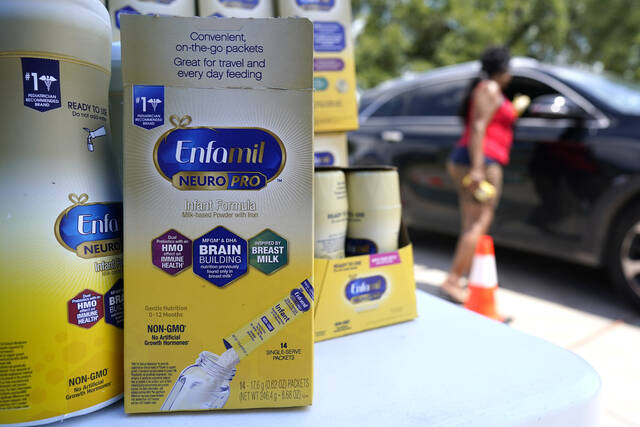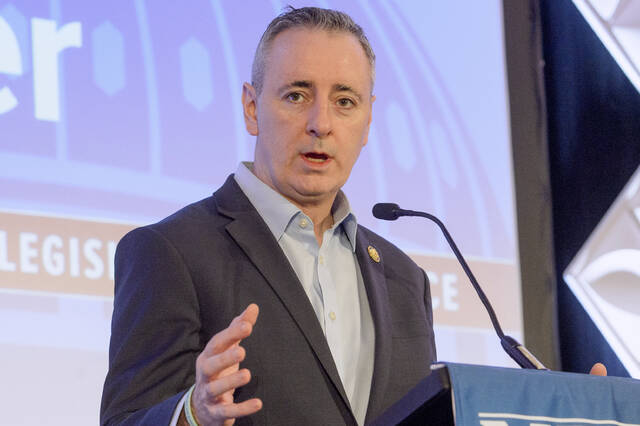The baby formula shortage might seem like yet another in an ongoing series of random supply chain problems since the start of the coronavirus pandemic and the global economic complications that followed.
Unless one is the parent of an infant. Then it could seem more like a siege.
Oh, come on, you might say. It’s formula, not plutonium. The price of gas is a much bigger deal.
I’m not saying $5 a gallon for gas isn’t a problem. I am saying that a Subaru Outback won’t scream for hours on end if it only has a quarter of a tank. A Ford pickup isn’t going to cry in pain all night if it is filled with a new and different gasoline. A Jeep won’t have a prescription for a particular fuel.
When my son was born, he had colic. If you don’t know what colic is, I suggest you get down on your knees and pray that doesn’t change, because colic will sap your will to live. To say it makes babies cry a lot is like saying a flood gets your feet wet.
I remember lying on the floor next to my son’s crib while he screamed like a wounded animal and thinking I should just take him to my mother’s house and leave him on the porch because he would be better off. I hadn’t slept for days, and this made total sense to me at 3 a.m. It was February. He was 6 weeks old. I didn’t do it — probably because I couldn’t find my keys or remember where my mother lived.
No one knows exactly what causes or cures colic. It changes for different babies. My husband and I tried so many brands of formula. Canned, concentrated, powder. With iron and without. Soy or no soy. Prescription and over the counter. Everything.
In the end, for us, it was Nestle Good Start, in the purple can, concentrated, and a bottle that reduced air intake. When I say that I would have committed crime to get the last purple can of formula, I’m not exaggerating. If it took an “Ocean’s Eleven”-style heist, I would have orchestrated it. That formula was necessary for my son’s life and my sanity.
The formula shortage has gained a lot of attention. It’s been looked at as an economic issue and a class problem. There have been discussions about why women don’t just breastfeed — as if willing that to work is as easy as wishing on a star. There have been old-fashioned formula recipes with ingredients such as corn syrup and evaporated milk; doctors urge people not to use these.
It seemed like the end was in sight when Abbott, the manufacturer whose shutdown and recalls precipitated the shortage after bacterial infections occurred in connection with a Michigan factory, reopened. That was great — until flooding shut it down again.
Formula is not toilet paper or pasta or lunch meat or tires. It isn’t something you can easily replace, delay or do without. It is important not only for a baby’s nutrition but also for the parents’ mental health — which also is critical to a baby’s physical well-being. Most reports of shaken baby syndrome surround a caregiver violently trying to stop an infant’s crying.
The shortage needs to be addressed quickly and completely. The importance of formula needs to be looked at critically to prevent this from happening again, because babies can’t wait until the price comes down or the shelves fill up. And neither can their moms.








